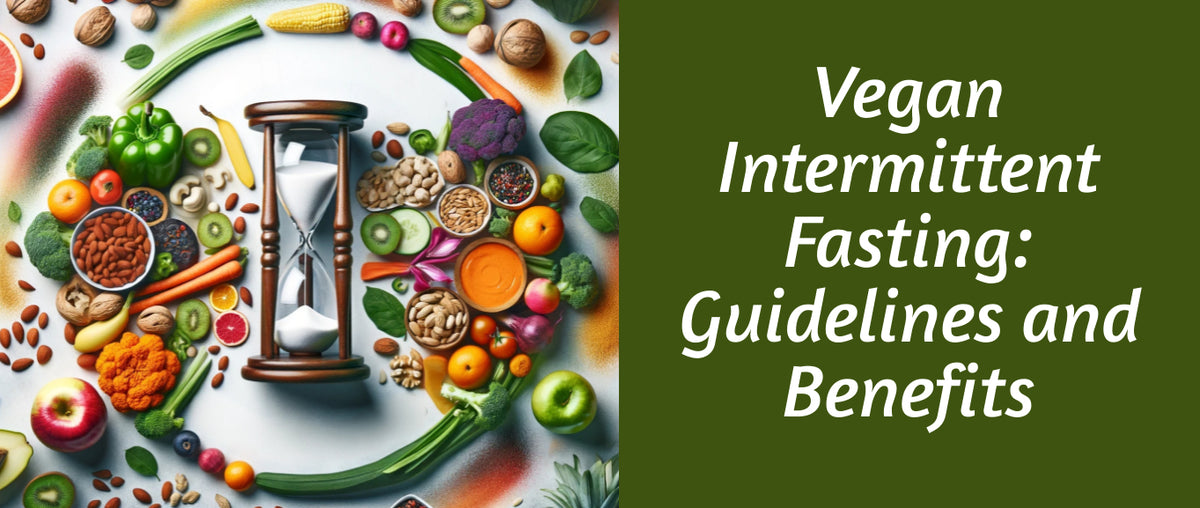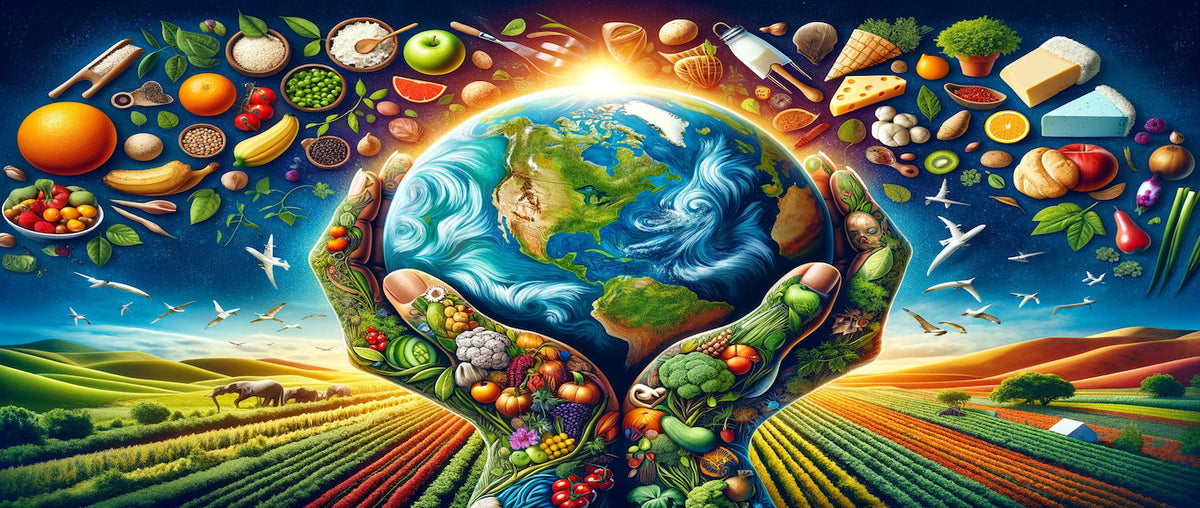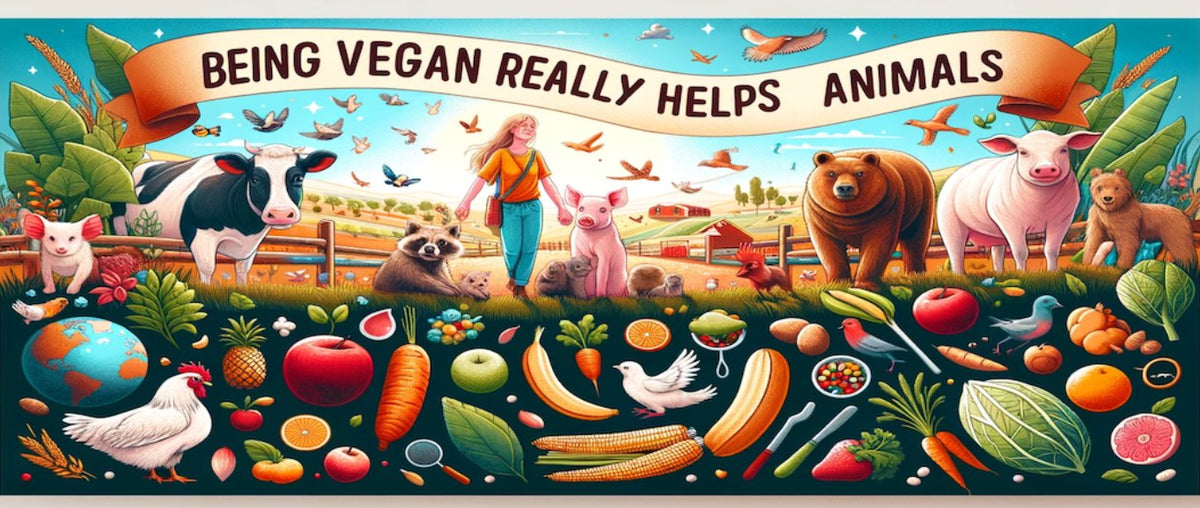Vegan Intermittent Fasting: Guidelines and Benefits
Vegan Intermittent Fasting has surged in popularity as a health and wellness trend, offering benefits like weight loss, improved metabolic health, and enhanced brain function. But when combined with a vegan lifestyle, it becomes a powerful approach to health that's both ethical and environmentally sustainable. In this detailed guide, we'll explore the nuances of vegan intermittent fasting, providing you with everything you need to know to implement this lifestyle successfully.
What is Vegan Intermittent Fasting?
Vegan intermittent fasting is an eating pattern that combines the principles of intermittent fasting with a vegan diet. It involves cycling between periods of eating and fasting, where during the eating windows, one consumes only Vegan products such as Vegan Cheese, plant based cheese , and vegan butter , ensuring all food intake is derived from plant sources. This method not only supports animal welfare and reduces environmental impact but also offers a host of health benefits.
Key Takeaways
- Ensuring a balanced intake of macronutrients (proteins, fats, carbohydrates) from plant-based foods.
- Focusing on whole, Unprocessed Cheese foods to maximize nutrient intake.
- Supplementing the diet with vitamins and minerals that may be less available in a plant-based diet, such as B12, iron, and omega-3 fatty acids.
Can You Lose Weight with Vegan Intermittent Fasting?
Yes, you can lose weight with vegan intermittent fasting, and many find it an effective way to manage their weight while enjoying a rich variety of plant-based foods. Here's how it works:
- Fasting periods encourage the body to turn to stored fat for energy, leading to weight loss.
- Plant-based diets are often lower in calories and higher in fiber, which can promote a healthy weight.
- Combining the two, vegan intermittent fasting can lead to a sustainable and healthy way to lose weight without compromising nutritional intake.
To optimize weight loss:
- Incorporate a variety of vegan food products like cashew butter, vegan mayo, and fat-free butter into your diet.
- Choose cholesterol-free foods and plant-based products that are minimally processed.
- Ensure you're getting enough protein through sources like legumes, tofu, tempeh, and plant-based protein powders.

Nutritional Considerations for Vegan Intermittent Fasting
When embarking on vegan intermittent fasting, it's crucial to ensure your diet is well-balanced and nutritionally adequate. This involves careful planning to include a variety of vegan items that provide all the necessary nutrients.
Essential Nutrients to Focus On:
- Protein: Critical for muscle repair and growth. Include a variety of plant-based protein sources such as lentils, chickpeas, tofu, and plant-based protein powders.
- Vitamins and Minerals: Pay special attention to vitamin B12, iron, calcium, and omega-3 fatty acids. Supplements may be necessary for nutrients that are challenging to obtain from a vegan diet alone.
- Healthy Fats: Incorporate sources of unsaturated fats like avocados, nuts, seeds, and Unsalted Butter alternatives.
What Vegans Eat:
- A diverse range of fruits and vegetables, whole grains, legumes, nuts, and seeds.
- Vegan products such as vegan cheese, plant-based cheese, vegan butter, and cashew butter.
What Can’t Vegans Eat:
- Any food products derived from animals, including meat, dairy, eggs, and honey.
Incorporating vegan intermittent fasting into your lifestyle can be a transformative experience, offering numerous health benefits while aligning with ethical and environmental values. By focusing on nutrient-dense, plant-based foods and carefully planning your fasting and eating windows, you can enjoy the myriad benefits of this healthy lifestyle choice.
Who Shouldn’t Try Vegan Intermittent Fasting?
While vegan intermittent fasting offers numerous health benefits, it's not suitable for everyone. Understanding who should avoid this lifestyle can help prevent adverse health effects and ensure it's a beneficial experience for those who choose to try it.
Individuals who should reconsider vegan intermittent fasting include:
- People with certain medical conditions: Those with diabetes, low blood pressure, or a history of eating disorders should consult with a healthcare provider before starting.
- Pregnant or breastfeeding women: Nutritional needs are increased during these periods, making fasting potentially harmful.
- Athletes with high nutritional demands: While not strictly advised against, athletes may need to tailor their fasting and eating windows carefully to ensure they're meeting their energy and nutritional needs.
Health Benefits of Vegan Intermittent Fasting
Vegan intermittent fasting isn't just about weight loss; it offers a range of health benefits that can contribute to a longer, healthier life.
Key health benefits include:
- Improved heart health: Studies suggest that intermittent fasting can improve blood pressure, cholesterol levels, and other heart disease risk factors. Vegan diets are also known to support heart health by reducing the intake of saturated fats and cholesterol.
- Enhanced brain function: Fasting has been linked to improved brain health and a lower risk of neurological diseases. A vegan diet, rich in antioxidants, can protect against oxidative stress, further supporting cognitive function.
- Increased longevity: Research indicates that intermittent fasting can extend lifespan. Combining it with a vegan diet, which is also associated with longevity, may amplify this effect.
- Better digestion and gut health: Regular fasting periods can help improve gut health and digestion. A vegan diet, high in fiber, supports a healthy gut microbiome.
Overcoming Challenges and Common Pitfalls
Adopting vegan intermittent fasting can come with its challenges, from managing hunger to ensuring nutritional adequacy. Here are strategies to overcome common pitfalls:
- Plan your meals: Ensure your eating windows include balanced, nutrient-dense meals. Incorporate a variety of plant-based foods to cover all your nutritional bases.
- Stay hydrated: Drinking plenty of water can help manage hunger and ensure you're well-hydrated during fasting periods.
- Listen to your body: If you're feeling unwell or excessively hungry, it might be necessary to adjust your fasting window or consult with a healthcare provider.
Do you enjoy vegan food? We have a list of vegan restaurants in India to help you find delicious options in your area!










